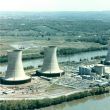Not whether, but when
By Baldev Raj, P.R.Vasudeva Rao, April 24, 2015
In Round One, Hui Zhang wrote that China shouldn't rush into development of commercial-scale reprocessing and breeder reactors. In Round Two, Janberg generalized Zhang's point by posing the following question to the authors of this essay: "Why rush into breeders and reprocessing?" But we, the authors, haven't argued that great urgency surrounds plutonium reprocessing or breeder reactors. Rather, our argument is that widespread use of these technologies is inevitable over a long timeline (assuming that the world’s uranium resources are to be used effectively). Neither Zhang nor Janberg has addressed the long-term sustainability of nuclear power so far in this roundtable. Both authors seem to think it satisfactory if fission energy is produced for only a few more decades.
Janberg and Zhang have both built their arguments against breeders and reprocessing partly on the basis of economics—uranium prices in particular. But discussions about long-term, sustainable sources of energy cannot be based solely on today’s economics. Uranium prices will go up when supplies begin to run out; it's only a question of time. But then, perhaps only people in countries starved of natural resources can appreciate what Homi Jehangir Bhabha, father of India's nuclear program, meant when he said that "no power is costlier than no power." That is, no means of generating energy poses greater burdens than the lack of energy poses.
Janberg likewise depends on short-term rather than long-term economics when he describes reaching his conclusion that "fast breeder reactors [will] always end up with considerably higher capital costs than light water reactors—at least 30 to 50 percent higher." Janberg's conclusion is hurried. It is derived from comparing a mature technology (light water reactors) to technologies that haven't yet been demonstrated on a comparable scale (breeders and reprocessing). So when Janberg presents his belief that "commercial fast breeder reactors [will] not succeed in my generation," we can only reply that our concern is not the current generation. It's future generations.
Zhang, meanwhile, wrote in Round One that "Plutonium recycling is much more expensive … than operating light water reactors with a once-through fuel cycle." But operational experience with reprocessing plants around the world is inadequate to make such a pronouncement. Indeed, France has pursued a commercial-scale reprocessing and recycling program with good success.
Waste and weapons. Janberg and Zhang also give short shrift to plutonium reprocessing and breeder reactors when it comes to reducing volumes of nuclear waste. But what then is to be done with the nuclear waste produced by the once-through fuel cycle? Neither author mentions Yucca Mountain—the nuclear waste repository in the United States that has faced intense political opposition during decades of planning and is still not close to becoming operational. If all countries with nuclear power sectors adopt a once-through fuel cycle, many Yucca Mountains will be required for waste disposal. This hardly seems feasible. Do all nations have space available for such facilities? Who will bear the expense of monitoring and ensuring these facilities' safety for centuries?
A final point: Janberg wrote in Round Two that perhaps "proliferation doesn't seem so important a concern" in India, and that India's 1974 nuclear detonation was the "ignition point" for nuclear weapons programs in many countries. It's somewhat unfortunate that Janberg chose to discuss proliferation in these terms. We, the authors, are participating in this roundtable as experts in fast reactors and the fuel cycle—we are not participating to present "the Indian position." But since Janberg has raised these issues, we will point out that India is recognized as a responsible nuclear power with an immaculate nonproliferation record. In any event, in discussions of proliferation one must distinguish between reprocessing and recycling. Could reprocessing lead to proliferation? That is a country-specific issue. But recycling, on the other hand, is a nonproliferation measure. Can a safer place be imagined for plutonium than the core of a reactor?
Topics: Nuclear Energy, Nuclear Weapons
Share: [addthis tool="addthis_inline_share_toolbox"]














